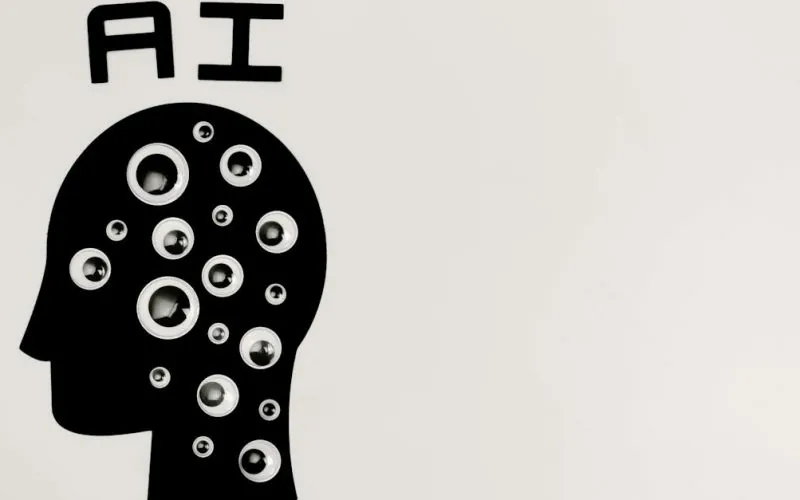Table of Contents
ToggleIn a world where robots can beat humans at chess and suggest your next favorite pizza topping, it’s no surprise that artificial intelligence is making waves in healthcare too. Imagine a future where doctors consult their AI sidekicks for diagnoses, treatment plans, and maybe even a solid dad joke or two. With the rise of AI in healthcare, professionals are scrambling to get on board, and the best way to do that? Enroll in specialized courses designed to blend the art of medicine with the science of algorithms.
Artificial intelligence isn’t just a buzzword; it’s transforming patient care, improving diagnostics, and streamlining operations. For those looking to stay ahead in this rapidly evolving field, diving into AI healthcare courses is a no-brainer. So why not take the plunge? After all, who wouldn’t want to be the superhero in scrubs with a trusty AI sidekick ready to tackle the toughest medical challenges?
Overview of Artificial Intelligence in Healthcare
Artificial intelligence transforms healthcare by improving efficiency and effectiveness. AI technologies analyze vast amounts of data, enabling quicker diagnoses and personalized treatment plans. Tools such as machine learning algorithms assist in predicting patient outcomes and identifying trends in health data.
Healthcare professionals increasingly rely on AI to enhance patient interactions. Intelligent systems streamline administrative tasks, allowing staff to focus on patient care while reducing burnout. These advancements promote a collaborative environment where clinicians and AI work together, enhancing decision-making processes.
Courses on AI in healthcare provide valuable insights into integrating technology into practice. Participants learn practical applications of AI, such as diagnostic support systems, predictive analytics, and natural language processing. Gaining proficiency in these areas keeps healthcare workers competitive in a rapidly evolving field.
Research indicates AI can reduce costs and improve patient outcomes. Implementing AI solutions results in more accurate diagnoses and more effective treatment protocols. Organizations adopting AI tools report higher levels of patient satisfaction and better operational efficiency.
A focus on AI training equips healthcare professionals with the necessary skills. Institutions developing AI educational programs emphasize real-world applications through hands-on experience. Engaging with AI technologies empowers healthcare workers to navigate the changing landscape confidently.
Investing in AI knowledge is critical for future success. As the healthcare industry embraces these technologies, professionals must adapt to stay relevant. Understanding AI’s role paves the way for innovations that enhance community health and improve individual patient care.
Importance of Education in Healthcare AI
Education in healthcare AI plays a vital role in preparing professionals for the rapidly evolving medical landscape. Training programs equip individuals with essential skills to effectively integrate AI tools into their practices.
Trends in AI Technology
Healthcare AI technology continues to evolve, influencing various aspects of medical practice. Recent trends include natural language processing for better patient documentation and predictive analytics for anticipating health risks. Such advancements enhance decision-making processes in clinical settings. Additionally, AI-driven imaging tools streamline diagnosis in radiology and pathology departments. Industry leaders emphasize continuous learning to keep pace with these innovations. Adopting new technologies not only improves outcomes but also fosters patient satisfaction.
Career Opportunities in AI Healthcare
Career opportunities in healthcare AI expand as the industry grows. Roles such as data analysts, AI engineers, and clinical informatics specialists are increasingly available. Professionals with AI expertise find positions across hospitals, research institutions, and startups. These roles often emphasize collaboration with medical staff to optimize patient care and operational efficiency. Salary potential also reflects the high demand, with many positions offering lucrative compensation packages. Pursuing education in healthcare AI becomes essential for those seeking to stand out in this competitive job market.
Types of Courses Available
Several types of courses cater to the growing interest in artificial intelligence in healthcare. Online platforms and universities offer various educational opportunities to equip professionals with essential knowledge.
Online Courses
Online courses provide flexibility for healthcare professionals looking to enhance their AI skills. These courses often focus on practical applications, such as predictive analytics and machine learning techniques tailored for healthcare settings. They can be found on platforms like Coursera and edX, offering certifications upon completion. Self-paced learning enables participants to balance their studies with work responsibilities while gaining access to expert-led content. Many online courses also feature community forums for discussion and networking among peers, bolstering collaboration and idea sharing.
University Programs
University programs provide a more structured approach to learning about AI in healthcare. Degree and certificate programs typically combine theoretical knowledge with hands-on experience through lab work and case studies. Institutions like Stanford and Johns Hopkins offer specialized master’s programs in health data science, merging AI principles with healthcare practices. These programs often emphasize research opportunities, allowing students to engage with real-world applications. Furthermore, partnerships with healthcare organizations may offer internships or job placement assistance, enhancing career prospects in the expanding AI landscape.
Key Skills Taught in AI Healthcare Courses
AI healthcare courses cover pivotal skills essential for modern medical practices. Participants develop expertise in various aspects of artificial intelligence, enabling them to adapt seamlessly to evolving healthcare demands.
Data Analysis and Interpretation
Essential to AI in healthcare, data analysis skills empower professionals to interpret complex datasets. Participants learn to collect, clean, and analyze health data, using tools like Python and R. Understanding statistical models enhances their ability to draw meaningful insights from healthcare trends. They grasp machine learning techniques that support diagnostic accuracy and patient management. Applying analytical skills effectively can lead to improved patient outcomes and operational efficiency. These abilities directly influence decision-making in clinical environments.
Ethical Considerations in AI
Addressing ethical considerations forms a core component of AI healthcare training. Students examine issues such as patient privacy, data security, and algorithmic bias. Knowledge of regulations like HIPAA equips them to navigate the complex landscape of data protection. Understanding ethical frameworks fosters a commitment to responsible AI applications. Participants also explore the implications of automated decision-making on patient care and trust. Preparing for these challenges is crucial in ensuring that AI’s integration into healthcare aligns with ethical standards.
Challenges in Implementing AI in Healthcare Education
Healthcare education faces significant challenges in incorporating AI effectively. One major issue is the rapidly changing technology landscape. As AI tools evolve, educational programs struggle to keep content current and relevant. Instructors often lack sufficient training in AI themselves, which hampers their ability to teach effectively.
Another challenge is the integration of interdisciplinary knowledge. Combining healthcare expertise with data science principles proves difficult. Many healthcare professionals have limited experience in data analytics, creating a gap that needs bridging. Compounding this problem is the varying levels of technological fluency among students. Some learners thrive in tech-savvy environments, while others may feel overwhelmed.
Resistance to change also poses obstacles. Healthcare facilities may be hesitant to adopt new technologies or alter traditional teaching methods. Furthermore, concerns about data privacy and ethics remain prevalent during the shift towards AI. Educators must address these concerns to foster trust in AI applications.
Budget constraints significantly impact the implementation of AI education. Many institutions face financial limitations that hinder the development of comprehensive AI programs. Collaborating with private sector organizations can help alleviate some of these financial barriers. Developing partnerships with tech companies may also provide access to the latest tools and resources.
Lastly, measuring the effectiveness of AI training presents a challenge. Establishing consistent evaluation metrics can be complex. Professionals need clear indicators of how AI training enhances patient care and operational efficiency. Overcoming these challenges will require a collaborative effort from educators, healthcare providers, and technology developers.
Future of Artificial Intelligence in Healthcare Courses
Artificial intelligence courses in healthcare are set to evolve significantly. Emerging technologies will shape course curricula, ensuring healthcare professionals acquire relevant skills. Organizations are prioritizing training in AI tools that enhance patient care and streamline operations. The emphasis on real-world applications, such as predictive analytics and clinical decision support systems, prepares individuals for immediate challenges.
Ongoing advancements in AI technology, including natural language processing, will be actively integrated into courses. These innovations enhance documentation practices and patient interactions, directly impacting healthcare delivery. Institutions like Stanford and Johns Hopkins are leaders in this educational shift, offering specialized master’s programs that prepare students for a dynamic workforce.
Career opportunities linked to AI are expanding rapidly. Data analysts, AI engineers, and clinical informatics specialists are increasingly in high demand. Collaboration with medical professionals is essential for these roles, enhancing patient outcomes and operational efficiency.
Key skills in AI healthcare courses are becoming more defined. Participants are diving into data analysis techniques and machine learning applications that improve diagnostic accuracy. Ethical discussions surrounding patient privacy and data security play a pivotal role, ensuring professionals address critical concerns while implementing AI solutions.
Challenges in AI education persist, though. Keeping content relevant in a fast-paced technology landscape remains a tough task. Gaps in interdisciplinary knowledge often arise, creating obstacles for instructors and students alike. Collaboration across education and healthcare sectors is crucial to overcoming resistance and budgetary limitations.
Continued investment in AI training will likely solidify its place in healthcare. As professionals embrace these changes, they significantly enhance their contributions to patient care and overall health system efficiency.
The integration of artificial intelligence in healthcare is not just a trend; it’s a transformative force shaping the future of patient care. As healthcare professionals embrace AI tools, they’re better equipped to improve outcomes and enhance operational efficiency. Enrolling in specialized AI courses is essential for staying competitive in this evolving landscape.
These courses provide valuable skills that empower professionals to harness the full potential of AI technologies. By investing in education and training, healthcare workers can navigate the complexities of AI while ensuring ethical practices. The future of healthcare hinges on the effective collaboration between human expertise and intelligent systems, paving the way for a healthier tomorrow.





